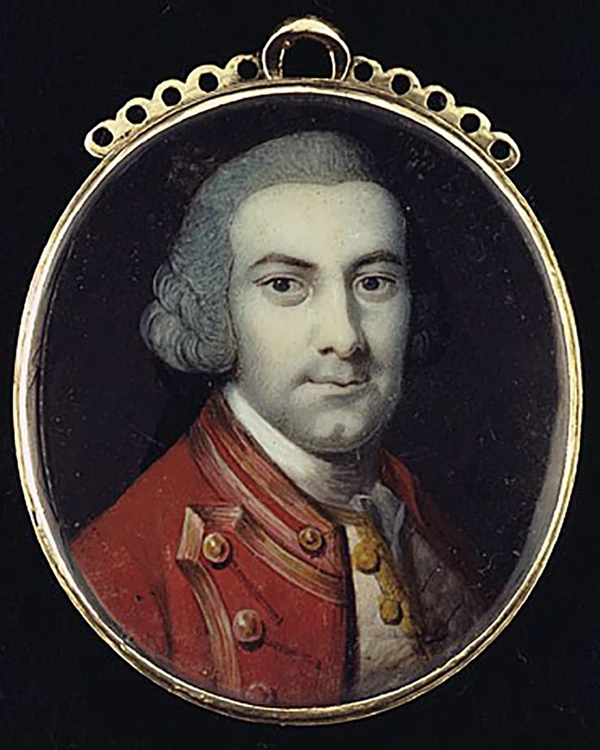Last updated: October 15, 2024
Person
Sir William Johnson

Library and Archives Canada, Acc. No. 1989-407-1
Johnson came from Ireland to America in the 1740's to manage his uncle's Mohawk Valley estate. A very enterprising man, Johnson was quick to grasp the possibilities that existed for accumulating wealth and land in the Valley.
Along with overseeing his uncle's business affairs, he soon had his own trading business with the Indians. He was one of the few Englishmen to understand the benefits of assimilating Indian culture into his political and business dealings with them. This helped give Johnson more credibility with the Indians. His greatest influence would always be with the Six Nations, particularly the Mohawks. Johnson was eventually adopted into the Mohawk Nation and took Molly Brant, a Mohawk Clan Mother, as his second wife in a common law marriage.
With start of the French and Indian War, English political and military leaders recognized Johnson's talents in working with Indians. In 1755, Johnson was appointed as Superintendent of Indian Affairs and was given a dual military commission as "Colonel of the Six Nations" and Major General of provincial forces. Also in 1755, Johnson was given the task of leading a mixed colonial/Indian force against French Fort Fredrick (modern Crown Point, NY) on Lake Champlain. The French attacked Johnson's force while it was encamped at Lake George, and Johnson was wounded. The resulting Battle of Lake George gave England its only victory against the French that year. To reward him, King George II knighted Johnson and made him a Baron. Johnson was the only colonist ever to be knighted, and the title is still in existence today. In 1759, Johnson was assigned to raise and lead a colonial/Indian force to support the British during their attack against French Fort Niagara. During the siege of the fort, the British commander was killed, and Johnson claimed command by virtue of his senior rank. This put him at odds with the regular British officers who did not feel that provincial commissions were on par with royal ones. In spite of this, Johnson retained command and finally forced the French to surrender.
Johnson worked tirelessly throughout the war to ally the Six Nations with England. This job was made all the more difficult due to England's lackluster performance against the French during the war's early years. Most Six Nations support for the British during the war would come from the Mohawks, due to Johnson's personal influence with them. It wasn't until near the end of the war, when it was obvious that France would lose, that Johnson's efforts bore full fruit and brought the Six Nations onto England's side as official allies. In 1764, a year after the end of the French and Indian War, a united Indian uprising known as Pontiac's Rebellion broke out in response to illegal colonial settlement on the frontier. It was largely through Johnson's influence that the Six Nations did not join in this rebellion.
While Johnson did usually keep the interests of the Indians at heart, he was not above using his position for personal gain. In 1768, he acted as the official Crown representative to negotiate a boundary line treaty of the frontier between England, the Six Nations, and other affiliated Indian nations. During these negotiations, Johnson overstepped his authority and pushed the boundary line further west then had been agreed to by the British government. Except for Johnson and some close friends, this treaty left everyone else (Indians, colonists, and the British government) unhappy.
Johnson was the driving force behind the creation of Tryon County in 1772. Situating the county courthouse and jail in his developing village of Johnstown allowed him to control virtually most of the political life of the new county. It was this power and influence in the daily workings of the county that kept rebellious activity nearly non-existent in the Mohawk Valley for many years directly prior to the American Revolution.
A combination of his old war wound and various sicknesses began to take a toll on Johnson's health as he aged, but he was not one to rest. In the midst of an Indian conference at his home in July of 1774, Sir William Johnson died. His death would leave a gap in royal authority over both the Indians and the colonists at a time when England needed it most.
